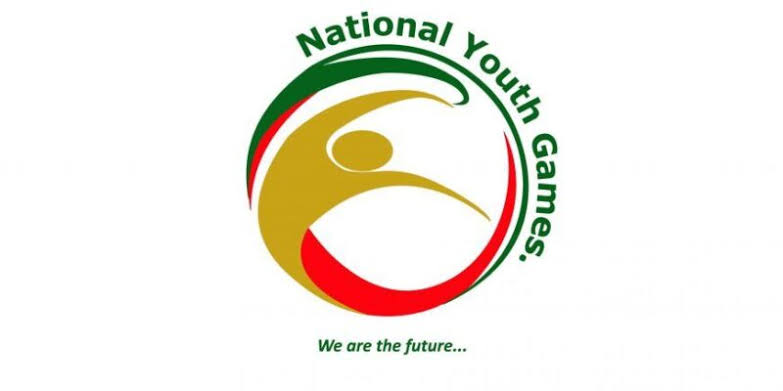
Toolz’s Twitter Confession: “The Most Talented Artisans Are Actually Mad” — A Decade-Long Dance Between Genius and Frustration
In a tweet that has since stirred conversations about creativity, temperament and the cost of craft, Nigerian on-air personality Toolz O. D. offered a candid glimpse into a relationship that many creatives and clients will recognize: a fraught, affectionate and occasionally combustible partnership with an artisan she’s known for nearly
In a tweet that has since stirred conversations about creativity, temperament and the cost of craft, Nigerian on-air personality Toolz O. D. offered a candid glimpse into a relationship that many creatives and clients will recognize: a fraught, affectionate and occasionally combustible partnership with an artisan she’s known for nearly ten years. “Nigeria has taught me that the most talented artisans are actually mad,” Toolz wrote. “This guy\'s work is impeccable, but almost every time we work together I have to tell him I\'m on the way to burn down his workshop before he finally delivers. Our toxic relationship G almost 10 years old now.”
The offhand line landed like a headline: part joke, part confession, and entirely human. At its heart it captures a dynamic that repeats across markets and social circles in cities from Lagos to London — the uneasy mix of brilliance and volatility, where extraordinary skill sits beside unpredictable behaviour. For many followers of Toolz, the tweet sparked laughter; for others, it provoked reflection about how society tolerates — and sometimes excuses — the erratic conduct of highly skilled individuals.
Toolz’s description reads as an intimate stage direction in a play that has been running for years. The artisan’s work is “impeccable”: a phrase that elevates craft to the level of art, signalling not just technical competence but a signature quality that clients come to rely on. Yet the path to that final, flawless product is littered with temper tantrums, missed deadlines and moments of dramatic brinkmanship. The threat to “burn down his workshop,” offered half in jest and half in exasperation, is shorthand for negotiations pushed to the edge and the theatre of creative tension that accompanies many collaborative projects.
Experts in creative industries and small-business ecosystems say that Toolz’s experience is unsurprising. Talented craftsmen and women often operate under pressures that can exacerbate stress: irregular income, long hours, and the constant pressure to innovate. In Nigeria’s thriving informal economy, artisans work within tight margins and sometimes without the institutional supports — contract law enforcement, formal dispute resolution, predictable supply chains — that temper volatility. In such an environment the same personality traits that drive obsessive attention to detail and risk-taking behaviour can also lead to impulsive or challenging interactions with clients.
There is also a cultural dimension. In many communities, artisans are accorded a mix of respect and tolerance; their idiosyncrasies are folded into a narrative of genius-in-need-of-forgiveness. Whether it’s a tailor who refuses to stitch a suit the way anyone else would, a sculptor who disappears mid-project to chase a sudden inspiration, or a photographer who insists on retakes until the light is “just right,” the creative temperament is often lionized even as it complicates everyday commerce.
Toolz’s tweet does more than poke fun at a single relationship — it invites viewers to examine how they engage with excellence. When talent is rare and results are remarkable, how much inconvenience is acceptable? How do clients balance accountability with appreciation? And critically, when behaviour crosses into genuinely harmful territory, what are the mechanisms for protection and redress? For many consumers, the calculus is simple: endure the eccentricities if the end product is worth it. For others, especially those who lack alternatives or who have less bargaining power, the dynamic can feel exploitative.
Online reactions to the tweet mirrored these tensions. Some applauded Toolz for calling out a truth many have lived: that brilliance often arrives wrapped in unpredictability. Others expressed concern about normalising threats — even when delivered in jest — and urged a closer look at workplace safety and the rights of both clients and artisans. A strand of commentary also highlighted the gendered dimension: female clients who publicly call out difficult service providers sometimes face backlash that male clients do not, and the framing of a woman threatening to “burn down” a workspace conjures complex imagery around agency, anger and social expectations.
For the artisan in question, the relationship with Toolz appears to be sustainable — “almost 10 years old” implies recurring collaboration, negotiated tolerances and, ultimately, mutual benefit. Long-term client-artisan relationships are not uncommon; familiarity can soften friction, build trust and create a shorthand that speeds future work. But longevity doesn’t erase the emotional labor involved in managing temperamental partners. It can also mask deeper problems: chronic late deliveries, exploitative pricing, or unsafe working conditions may be more easily overlooked once a personal rapport is established.
What might change that calculus? Some industry watchers recommend clearer contracts, better communication protocols, and third-party mediation options that protect both clients and creators. Formalizing expectations around timelines, payment schedules, and quality standards can reduce the theatrical brinkmanship that Toolz describes. For artisans, access to training in client relations and business practices can reduce incidents born from miscommunication or poor planning. For patrons, developing networks of recommended professionals and sharing honest reviews online can foster accountability without crushing the creative spark.
Yet not everything worth preserving can be regulated. There is an emotional currency in relationships built over time — the shared history, the jokes, the collective knowledge of what will and won’t work. Toolz’s tweet, in its wry, conversational way, acknowledges that currency. Her willingness to publicly name the problem while also celebrating the outcome models a kind of honest cultural currency: one that recognizes the mess behind the masterpiece.
As the post circulates, it also does something that social media often does best: it opens a small window into everyday life and invites millions to nod in recognition. In a city where artisans shape the physical and visual culture — from hairstyles to fashion to bespoke furniture — the struggles behind that craftsmanship are rarely seen. Toolz peeled back the curtain for a moment and offered a narrative many recognize: that brilliance is often messy, that genius may be difficult, and that sometimes the best things come with a price.
Whether the tweet prompts a rethink of how clients and creators manage their relationships remains to be seen. But for now, Toolz’s confession stands as a pithy, resonant snapshot of a dynamic that is as old as commerce itself and as modern as a viral tweet. It is, at once, a tribute and a complaint — the kind of line that lands because it is true, funny and faintly dangerous. For both the artisan and the on-air personality, the show goes on.
Share this post
Related Posts

Elon Musk’s Feminism Comment Sparks Global Debate on Family, Power, and the Future of Gender Politics
A familiar cycle played out once again on social media this week when Elon Musk,...

Tears and Rain: Ogun State Athletes Abandoned to Sleep in the Open at Youth Games in Delta
Ogun State’s young athletes, who journeyed with high hopes to represent their state with pride...

Tinubu Touches Down in Benue, Embraces Survivors as Nation Mourns Yelwata Massacre
In a rare but powerful move that captured the nation’s attention, President Bola Ahmed Tinubu...